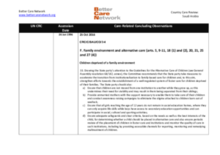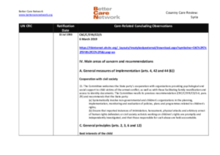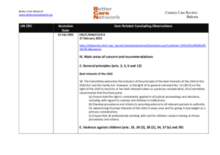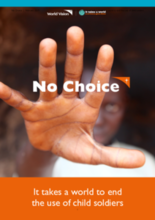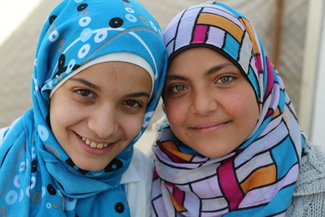

Displaying 111 - 120 of 244
The goal of this study was to assess the child maltreatment (CM) prevention readiness (CMPR) of the Kingdom of Saudi Arabia (KSA) in regard to implementing large-scale, evidence-based CM-prevention programs.
"Yazidi survivors groups have embraced a decision by the community’s elders to allow children who are the result of rape by members of Islamic State to return with their Yazidi mothers to their homelands in Iraq," says this article from the Guardian.
This book largely focuses on unaccompanied minors who arrived in a European country in 2015, with special attention paid to the top-three nationalities of unaccompanied minors, namely Syrian, Afghan and Eritrean minors.
This study was based on a random cluster sample of 1409 youth, aged 13 to 20, in Israeli educational residential care settings (RCSs) designed for youth from underprivileged backgrounds.
This country care review includes the care-related Concluding Observations adopted by the Committee on the Rights of the Child and the Committee on the Rights of Persons with Disabilities.
This country care review includes the care-related Concluding Observations adopted by the Committee on the Rights of the Child. The Committee's recommendations on the issues relevant to children's care are highlighted, as well as other care-related concluding observations, ratification dates, and links to the Universal Periodic Review and Hague Intercountry Adoption Country Profile.
This country care review includes the care-related Concluding Observations adopted by the Committee on the Rights of the Child.
World Vision commissioned the research, 'No Choice', to better understand children associated with armed groups.
This study focuses on life satisfaction among care leavers four years after leaving care in Israel.
This article provides a review of indicators of child well-being in the six Gulf countries (Bahrain, Kuwait, Oman, Qatar, Saudi Arabia, and the United Arab Emirates), focusing on well-being in six domains: physical health, behavioral adjustment, psychological well-being, social relationships, safety, and cognitive well-being. The article highlights children's participation in decisions affecting their lives, relationships with parents and caregivers, and protection from abuse and neglect, among other indicators.

